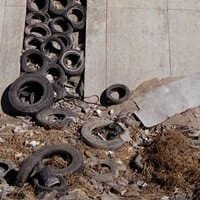(BRUSSELS) – The European Commission proposed for the firtst time Monday measures to prevent microplastic pollution from the unintentional release of plastic pellets.
Microplastics are found all over the world, even in the most remote locations, and in the human body. The risks related to high levels of human exposure are a cause of grave concern. Plastic pellets are found in water and soil, including agricultural lands, and harm ecosystems and biodiversity. Pellets are known to be eaten by a range of marine and coastal species, such as sea turtles, seabirds and shellfish, and once ingested, they can cause physical harm or death.
Currently, between 52 and 184 thousand tonnes of pellets are released in the environment each year due to mishandling throughout the entire supply chain. The new proposal aims to ensure that all operators handling pellets in the EU take the necessary precautionary measures.
This is expected to reduce pellet release by up to 74%, leading to cleaner ecosystems, contributing to plastic-free rivers and ocean, and reducing potential risks to human health. Common EU-wide measures will also help level the playing field for operators.
Plastic pellets are the one of the largest sources of unintentional microplastic pollution. The Commission is proposing that operators act in the following priority order: prevention to avoid any spills of pellets; containment of spilled pellets to make sure they do not pollute the environment; and, as a final option, clean up after a spill or loss event. The proposal includes:
- Best handling practices for operators: depending on the size of the installation or transport activity, operators will have to abide by certain best handling practices. These have already been implemented by frontrunners.
- Mandatory certification and self-declarations: To assist national competent authorities in verifying compliance, larger operators should obtain a certificate issued by an independent third party, while smaller companies should make self-declarations of their conformity.
- A harmonised methodology to estimate losses: to help operators monitor their losses and tackle some of the remaining data gaps, a harmonised methodology will be developed by standardisation bodies. It should also increase accountability by increasing awareness of the impacts of different practices on the environment and human health.
- Lighter requirements for SMEs: as the pellet supply chain has a large share of SMEs, lighter requirements will apply especially to micro and small operators.
“Once these small particles of plastic are in our environment, they are almost impossible to clean up,” said environment Commissioner Virginijus Sinkevicius: “Microplastics are pervasive and we need to stop the pollution at the source. That’s why today’s proposal aims to prevent the spill of plastic pellets in our environment, for the sake of our ecosystems and health, and in support of economic sectors that depend on healthy soils and clean, plastic-free rivers and oceans.”
The proposal for a Regulation on preventing pellet losses now needs to be discussed by the European Parliament and the Council. All economic operators, both EU and non-EU, will need to comply with the requirements set out in this Regulation within 18 months of its entry into force.
Measures to reduce microplastic pollution from plastic pellets - guide
Proposal for a Regulation on preventing pellet losses to reduce microplastic pollution
Proposal for a Restriction on intentionally added microplastics
Proposal for a Regulation on EURO 7 related to release of microplastics from tyres








